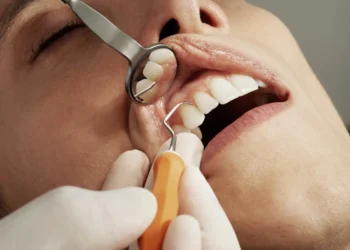Many dog enthusiasts choose the King Charles Cavalier breed which is recognized for its friendly attitude and appealing looks. Its beautiful, large, expressive eyes help to capture hearts wherever they go. Though they are great friends, owning a King Charles Cavalier carries particular obligations.
Understanding the particular care requirements of this breed will help you to ensure their well-being whether you are a first-time dog owner or adding a new member to your family. This article offers basic care advice for newly acquired King Charles Cavalier owners, therefore enabling their best potential start in life.
Sociability and Training
Raising a well-mannered King Charles Cavalier depends greatly on socialization and training. These smart and eager-to-please dogs may make training rather simple. Ensuring your Cavalier develops to be well-adjusted depends on early socializing.
Early exposure to varied surroundings and other animals will help them grow confident. This breed responds best to positive reinforcement methods including treats.
Offering a Cosy Living Space
The King Charles Cavalier lives best in a loving and caring household. As long as they receive enough attention, their compact stature helps them to fit comfortably in apartments and houses. They would prefer to remain indoors with their family; hence they are not suited for outdoor life.
Arrange a comfortable environment including some toys to keep them occupied when considering the king charles cavalier for sale in Melbourne. Cavaliers’s thin coat makes them more likely to be cold-sensitive, hence it’s crucial to keep them warm in cooler months.
Understanding Behavioral Characteristics
King Charles Cavaliers are renowned for their kind and loving attitude. They enjoy company and could get nervous if left alone for extended lengths of time. Their mild demeanor makes them perfect family friends and nice with kids and other animals.
If they are not correctly trained and socialized, they can acquire behavioral problems. Their desire for human contact should be known, so make sure they have enough mental stimulation and affection to maintain their happiness and adaptation.
Royal Charles Cavaliers’s Exercise Requirements

King Charles Cavaliers are little canines but active and lively ones who require daily exercise to remain happy and healthy. Through interactive toys and activities, they enjoy mild walking, playfulness, and cerebral stimulation.
Even while they might not need as much exercise as bigger breeds, everyday chances for running, investigating, and releasing their energy are vital for them. Their physical condition will benefit much from a good walk or some playtime in a fenced yard, which also helps lower any behavioral problems.
Though frequent low-impact exercise is ideal for keeping them fit, be aware of their size when considering king charles cavalier for sale in Melbournesince they may not be able to tolerate intense physical activity like certain bigger breeds.
Read Also: Top Inspiring Entrepreneurs in the Hairstyling Industry
Traveling with Your King Charles Caviar
Usually, a good experience, traveling with a King Charles Cavalier is recognized for its composure and flexibility. Whether you’re flying or on a road vacation, Cavaliers are usually easy to handle and can manage travel as long as they are kept comfortable. For safety, ensure sure your dog is fastened in a pet carrier or harness while you are driving.
When traveling on airlines, make sure they have suitable small dog accommodations. Always bring basics such as food, water, and any prescriptions they might require to help them feel safe whether on the road or in travel.
Also Read: Top 10 Hair Care Products for a Long-Lasting Taper Fade
Preventing Common Health Problems
Though King Charles Cavalier is a generally healthy breed, they are prone to some genetic diseases; hence frequent veterinarian appointments are rather important. Without monitoring, heart illness, especially mitral valve disease can cause heart failure in Cavaliers. Their floppy ears also run them in danger of hip dysplasia, eye problems, and ear infections.
Monitoring their weight, feeding them a balanced diet, and keeping them active prevent these health problems. Regular veterinarian visits will help find any early symptoms of disease and save many disorders from aggravating.









